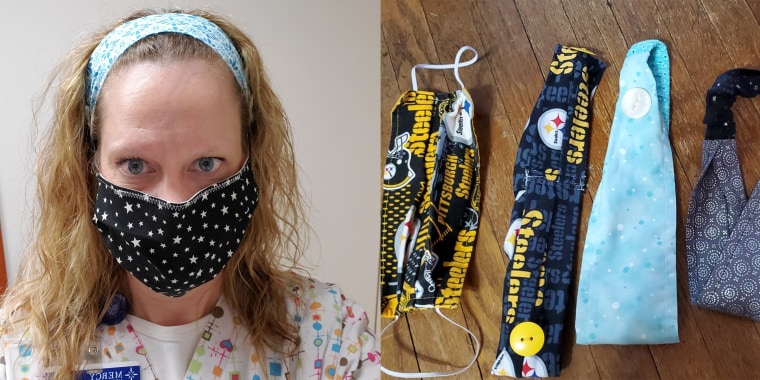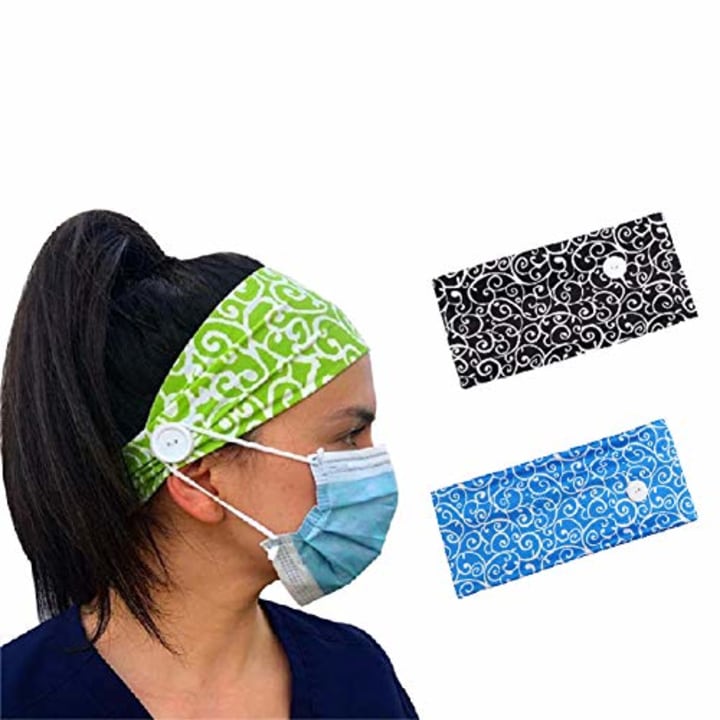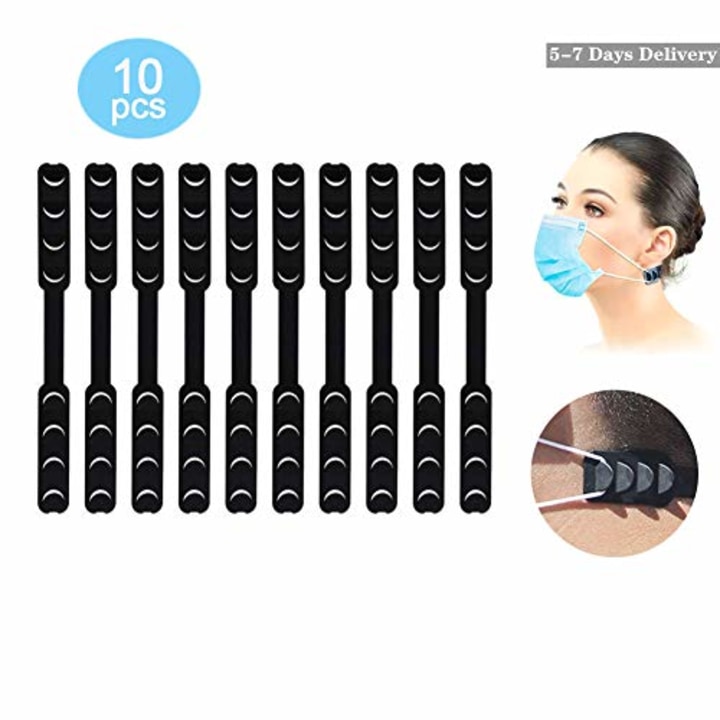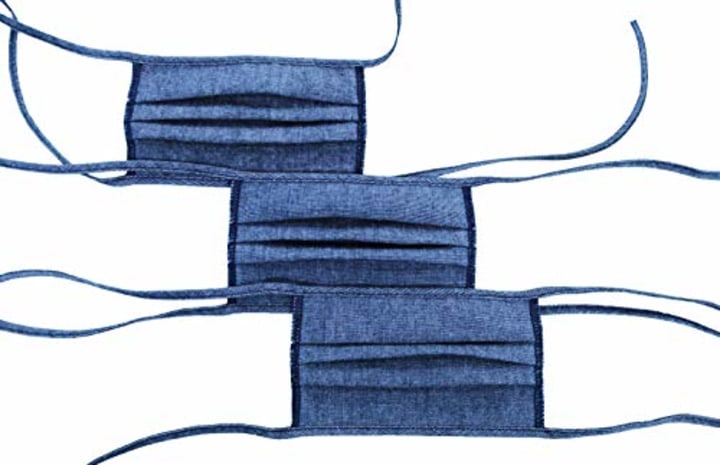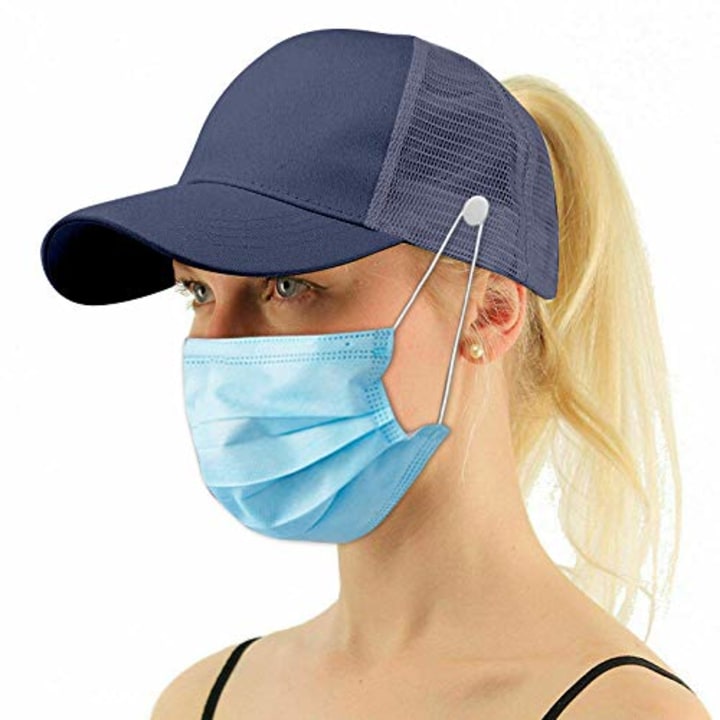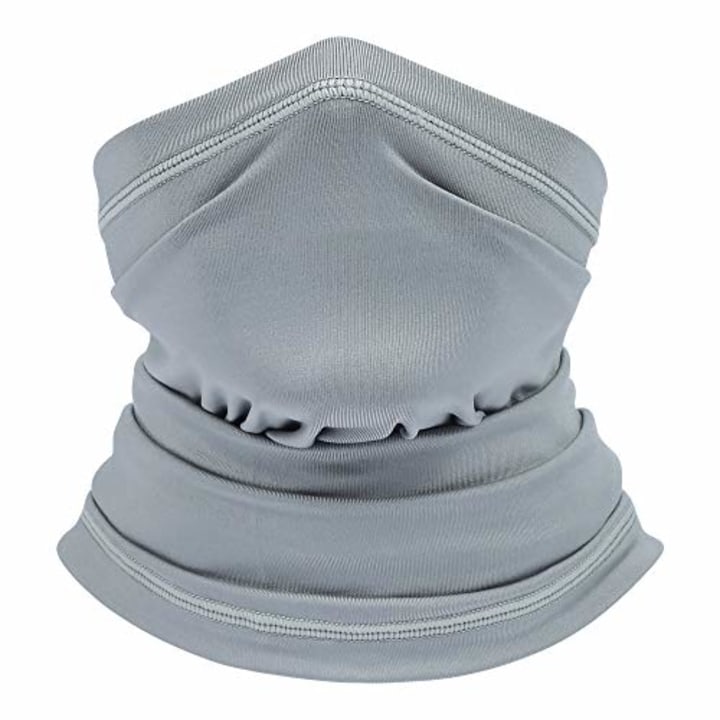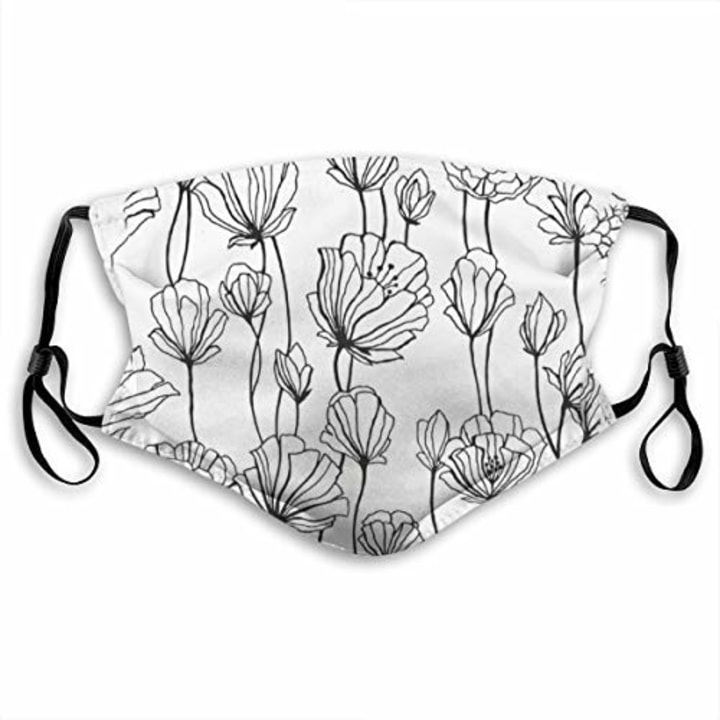Face masks are an essential part of protecting yourself and others from coronavirus, but that doesn't make them any easier to wear. Over the past few weeks, we've realized firsthand how masks can wreak all sorts of havoc on our skin. Now many of us are dealing with another unfortunate side effect: discomfort on our ears.
Those loops that keep your mask in place can put a lot of pressure on your ears and aggravate your skin, but there are a few ways to prevent that. From skin care tips to face mask ear savers, these are the tricks experts swear by.
Download the TODAY app for the latest coverage on the coronavirus outbreak.
Why do masks bother ears so much?
The majority of us only wear a mask on Halloween as temporary props we can take off at any time. But now that we're wearing masks out in public on a regular basis, we're quickly realizing that they can be uncomfortable.
"Moisture and friction can cause irritation, as prolonged mask use can irritate sensitive skin. Some masks are tied around the head, and some are fastened by loops that go over and around the ears, so the ears can (be) irritated as well," said Dr. David Lortscher, board-certified dermatologist and CEO of skin care brand Curology.
Irritation can show up in many forms, including bruising, raw skin or increased acne and breakouts.
When face mask straps rub against your ears, they create friction that can result in inflammation in the outer skin layer and blistering.
"This can cause open wounds or scabbing of the skin, which increases your risk of developing an infection. Plus it makes it a challenge to apply a mask again over those areas," said Dr. Joshua Zeichner, board-certified dermatologist and director of cosmetic and clinical research at Mount Sinai Hospital's department of dermatology.
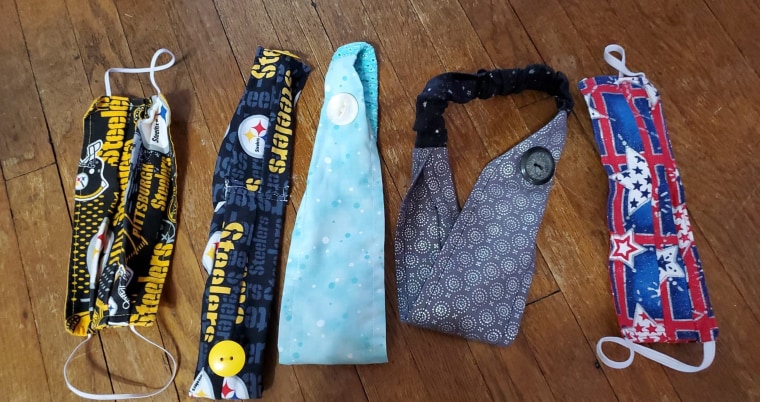
Is ear irritation from face masks inevitable?
Preventing ear irritation while wearing a face mask can be challenging, but it's not impossible. There are a few ways to shield your ears from irritation:
- Break out your first-aid kit: "I recommend using a thin, silicone foam dressing that is cut to fit the ears to protect that sensitive area from irritation and skin breakdown from prolonged pressure from masks," said Dr. Andrew F. Alexis, professor and chair of the department of dermatology at Mount Sinai West and Mount Sinai Morningside. Band-Aids also work well!
- Consider mask fabrics carefully: "If you are not in a crowded, high-risk area and you can maintain adequate social distance, consider a cotton mask with cotton ear ties. Natural fibers are gentler on the skin than synthetics," Zeichner said.
- Include ears in your skin care routine: "To minimize ear irritation and discomfort from wearing masks or face coverings, maintain a gentle skin care routine that includes a hydrating cleanser used twice daily and a noncomedogenic facial moisturizer twice daily. Moisturizing ingredients to look out for include: glycerin, niacinamide, hyaluronic acid and ceramides," Alexis said.
If the damage is already done and your ears are feeling pretty raw, there are a few ways to soothe them:
- Apply moisturizer to ears twice daily: "Moisturizer helps repair the skin barrier and keeps the outer skin there as healthy as possible," Zeichner said. "A great ingredient to look for is colloidal oatmeal because it forms a breathable film over the skin and has anti-inflammatory properties."
- Tackle irritation: "If you have any open, raw or sore areas, use an occlusive ointment like Vaseline petroleum jelly. Triple purified petrolatum forms a protective seal over the skin to enhance wound healing and increase skin hydration," Zeichner said.
- Try honey: "Honey has wound-healing and antimicrobial properties and may be used to any open or raw areas," Zeichner said.
How to make face masks more comfortable on ears
If the pressure of wearing a face mask hurts your ears, there are a few innovative products (often dubbed "ear savers") to help ease discomfort. On Pinterest, searches for "how to make ear savers for masks" were up threefold in recent weeks.
Dr. David M. Aronoff, director of Vanderbilt University Medical Center's Division of Infectious Diseases recommends the following ear savers to make wearing masks a bit more bearable:
- Look for a tie-back mask that doesn't have an elastic ear loop
- Anchor your ear loops on buttons sewed onto the side of a headband or hat
- Try a ear-saver clip that's positioned at the back of the head and used to hold elastic ear loops
After a few weeks of wearing uncomfortable masks, a lot of crafters have begun making DIY ear savers at home. When Sara Regoli, who works in a hospital lab, mentioned that the backs of her ears hurt after wearing a mask all day, her aunt started making headbands with buttons on the side.
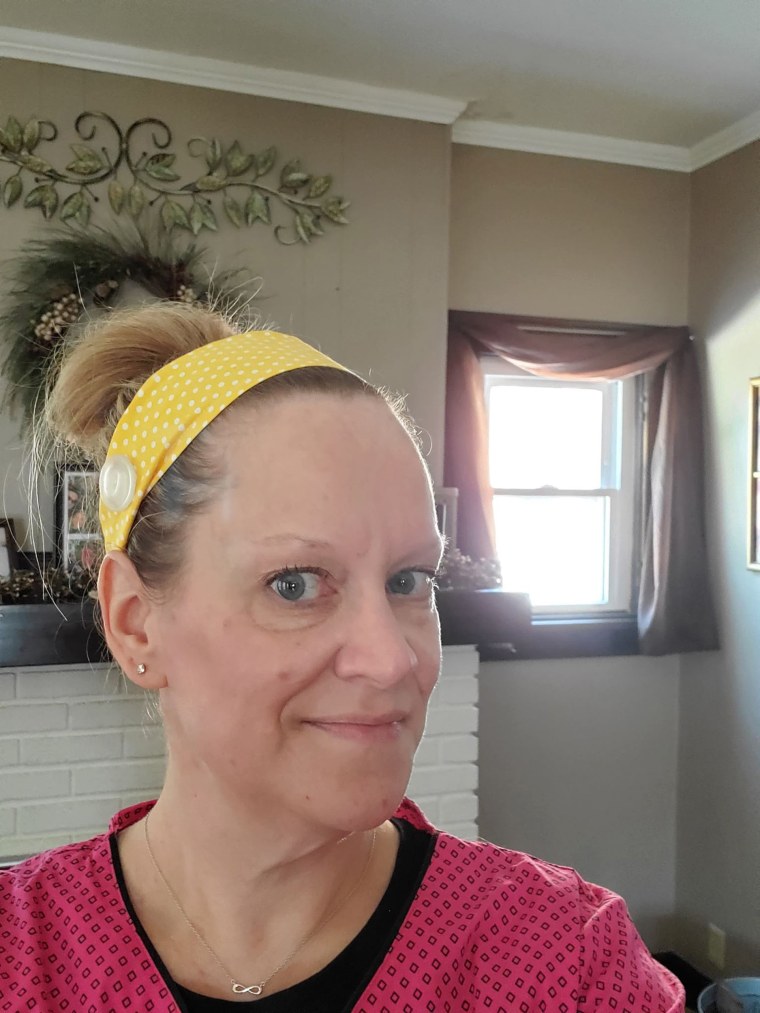
The fashion industry is also rising to the occasion. When designer Clare Vivier recently began manufacturing masks, comfort was at the top of her mind.
"We designed our masks to tie behind your head and neck instead of attaching behind your ears specifically because we got feedback from people that masks that hook onto ears can be uncomfortable. We also happen to think the ties add a little moment of joy to the masks and masks need all the joy they can get," Vivier told TODAY Style.
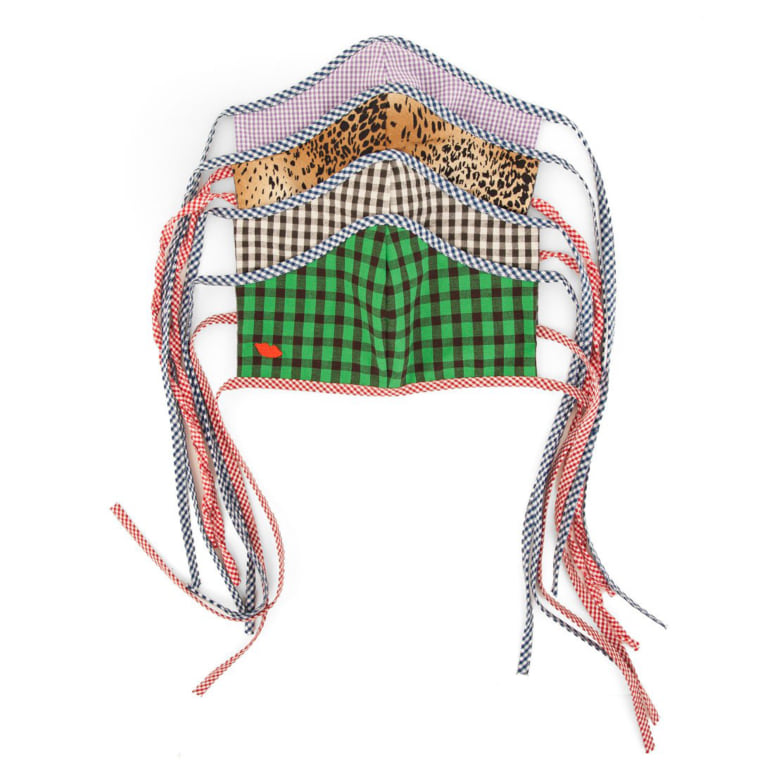
Some companies, like lifestyle brand Everyday California, are even making neck gaiters as an alternative to face masks with ear loops.
"With the gaiter design we chose, we eliminated the ear irritation consumers frequently complain about and gave them an option they can wear during numerous activities, be it snowboarding, hunting or as sun protection when kayaking," co-founder Chris Lynch said.
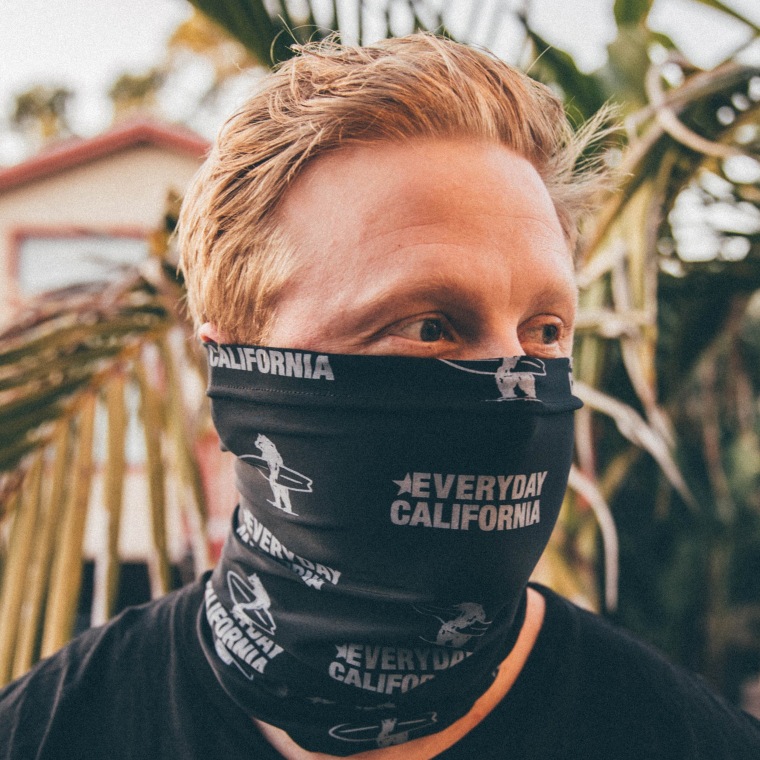
Face mask ear savers to try
1. Eightown Button Headband Holder for Mask
Looking for a face mask ear saver with a bit of personality? This printed headband has buttons on the side to hold ear loops so they don't tug on ears.
2. Anti-Tightening Mask Extender & Ear Protector
This bestselling, anti-slip ear hook wraps around the head and helps relieve the pressure that comes along with wearing a mask over your ears.
3. Adjustable Reusable Face Cover
Face masks that tie in the back, rather than loop over ears, can give you a bit more wiggle room and help you find the right fit.
4. Button Baseball Cap Face Mask Holder
Heading out for a jog and don't want to worry about mask straps irritating your ears? This baseball cap ear saver shields skin from the sun's harsh rays and locks your mask in place.
5. Neck Gaiter Face Mask
Neck gaiters are a practical option if you want to protect yourself but avoid the discomfort that's often associated with face masks with ear loops.
6. Face Mask with Adjustable Ear Loops
Need a bit more flexibility? This adjustable ear loop face mask lets you create a secure fit.
